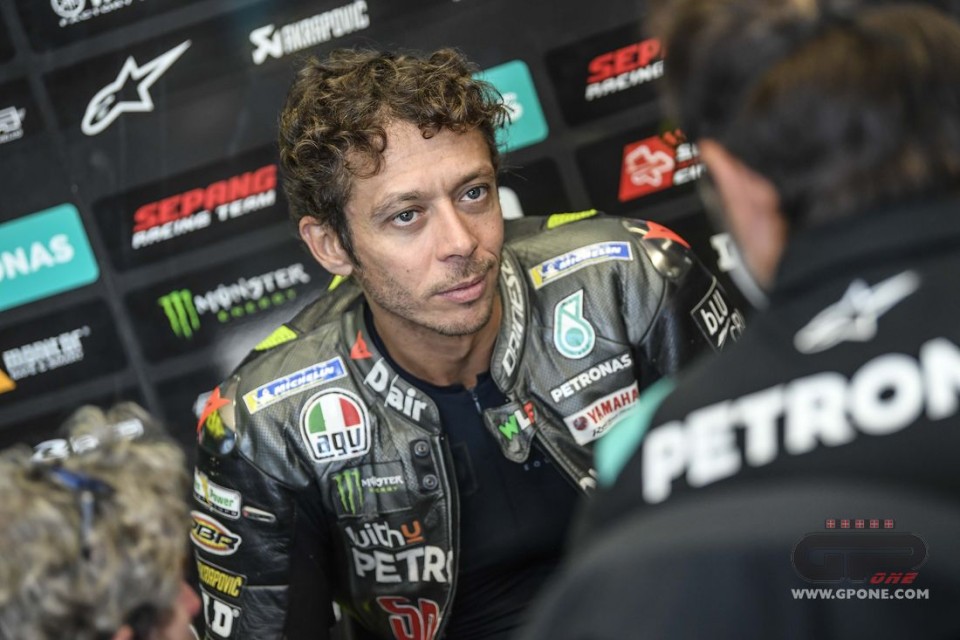For less than half a second in Austin, Valentino Rossi lost his chance to win his last Grand Prix. It was 2019, and Vale had finished behind Alex Rins. It was a strange defeat: after being overtaken and after overtaking, the nine-time world champion lost a lot of ground, missed out in hard braking – arriving long and off the trajectory – but, then, he recovered a lot in the last lap, even if it wasn’t enough to allow him to fight for the sprint. Maybe that’s why he can’t wait to get his wheels back on this track.
“I’m happy to be here. I love this track. It’s a great track. In 2019, I had the chance to win. Unfortunately, in the end, Rins beat me, but I had made some mistakes. Nevertheless, I was very competitive.”
Valentino knows the reason for this competitiveness.
“The rider is very important on this track. There are sections where different riders can interpret it differently. There's a section with seven corners, one after the other, in which different trajectories can be followed. An unusual thing on modern slopes, where there’s normally only one. And then there’s also the mechanical part: the asphalt is very bumpy, there are many holes, so the bike not only has corners to take on, but it has to absorb the holes.”
By now, the World Championship has taken its direction. On the contrary, the Superbike is experiencing a great battle between Razgatlioglu and Rea. And Rossi has his own opinion on both riders.
“I like Toprak a lot. He’s a modern young man and, physically, he’s very prepared and has great control of the bike. It’s his strong point. I’m very curious about the test he’ll face at the end of the season on the M1, because he could be competitive in the MotoGP. This year, the battle with Rea is interesting, because they’re both great Superbike riders. It’s a shame that Rea didn’t spend five or six years in the MotoGP. He had the potential to go fast, and might be strong even now.”
The Superbike is a category in which you fight tooth and nail, but it’s nothing compared to what you see with smaller displacements, and the third fatal accident of the year, which took place in Jerez in the SS300, confirms this.
“It was a disaster at Jerez, and it’s the third time that a young rider has been involved. What can we do? One of the most dangerous moments in our sport is falling and being run over. In the SS300, there were forty-two motorcycles at the start, and that's a lot. This way, the risk is too high. Then the bikes are heavy, and they’re not very fast. And that’s why they always remain close together. So, the risk that an accident like this can happen increases. What can we do? First of all, we should have more respect for the yellow flags. I don’t know the dynamics of the accident, but when riders see the yellow flag, in most cases, they just try to waste as little time as possible. In recent years, young riders have been very, very, very aggressive, and they’re scary, because everyone gives their best in a sport, motorcycling, which is already dangerous in its own right. I don’t know if being young is an aggravating factor. It could be. It can be increased by a year, two but, above all, the youth competitions must be managed more carefully and, if one of the riders does something dangerous, the penalty must be severe. In recent years, the aggressiveness of the riders has really increased. That’s the problem, not age. Our sport is fantastic, we all love it, but you have to respect yourself when you’re on the track. This is much more important than gaining two positions, for your own safety and that of your colleagues. This is the message that should pass because, when I see them, it seems to me that they risk a lot and don’t worry about their opponents. This is very important for the future.”









